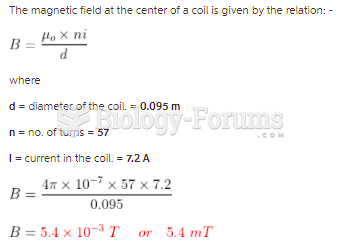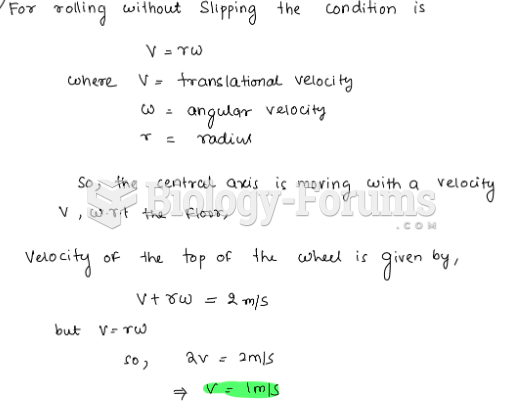|
|
|
The cure for trichomoniasis is easy as long as the patient does not drink alcoholic beverages for 24 hours. Just a single dose of medication is needed to rid the body of the disease. However, without proper precautions, an individual may contract the disease repeatedly. In fact, most people develop trichomoniasis again within three months of their last treatment.
Between 1999 and 2012, American adults with high total cholesterol decreased from 18.3% to 12.9%
Vaccines prevent between 2.5 and 4 million deaths every year.
In the United States, an estimated 50 million unnecessary antibiotics are prescribed for viral respiratory infections.
Opium has influenced much of the world's most popular literature. The following authors were all opium users, of varying degrees: Lewis Carroll, Charles, Dickens, Arthur Conan Doyle, and Oscar Wilde.







